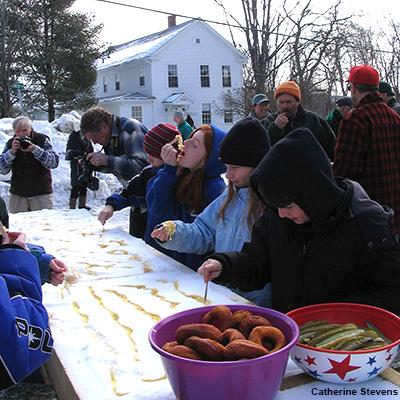Perceptions of Maple Producers Towards Climate Change

The Northern Forest region of Vermont and New York is home to over 1,000 commercial maple producers who rely on maple production for income and for longstanding family and community traditions. Some studies project changes in maple production due to climate change and its potential impacts on forest type (i.e., from maple to oak-hickory-pine), tree health and vigor, and timing of sap flow, although predictions vary. Because maple producers depend on the health of sugar maples for their livelihood and cultural traditions, adapting to changes in maple production will likely be necessary in the future and will require planning.
Through interviews, a survey, and focus groups, NSRC researchers collected information about maple producers’ knowledge, perceptions, and behaviors, and engaged producers in the development of strategies to help them adapt to potential impacts of climate change. Researchers interviewed 14 producers in the Northern Forest region of New York and Vermont and then conducted a mail survey of producers to assess their ability to adapt to change and to identify factors that influence this adaptability.
More than half of maple producers who responded to the survey expressed concerns about climate change, and more than two-thirds had already made or were planning to make modifications to their businesses. Two factors identified as most important to respondents when assessing adaptability to climate change are resiliency of the sugar bush and producers’ ability to adopt new technologies. Despite uncertainty about climate, maple producers are highly optimistic about the future, with 90% planning to continue or expand their business within the next five years.
